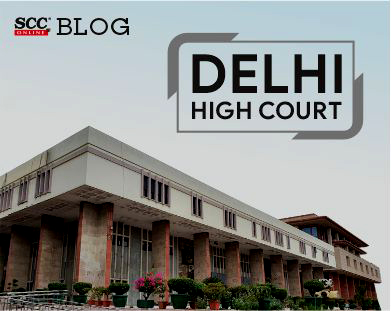Delhi High Court: In a case where application was filed by Nokia under Order 39 Rule 10 of CPC, the Single Judge Bench of C. Hari Shankar, J. held that the FRAND Agreement between Nokia and Oppo was on a counter-licensing basis and did not indicate any admission by Oppo of any liability towards Nokia. Therefore, Oppo cannot be directed to pay royalty to Nokia.
Background
Plaintiff (Nokia) was the holder of various patents, and the present suit was related to its three patents: (a) System and Method for Providing AMR-WB DTX Synchronization; (b) Method Providing Multiplexing for Data Non-Associated Control Channel; and (c) Additional Modulation Information Signaling for High-Speed Downlink Packet Access. According to Nokia, the three suit patents were Standard Essential Patents (SEPs), which were necessary for the technology to work and for making cellular systems 2G, 3G, 4G and 5G compliant.
Nokia stated that defendant (Oppo) in its cellular handsets employed 2G, 3G, 4G and 5G technology and used the technology in Nokia’s three SEPs. To support the contention that Oppo was using Nokia’s suit patents, Nokia had filed ‘Claim Mapping Charts’, which mapped each element of the claim to sections of the third-generation partnership project (3GPP) technical specifications which formed the basis of wireless telecommunications standards developed within the framework of the European Telecommunications Standard Institute (ETSI). Moreover, for a patent, to qualify as a SEP, it must map onto a standard set by the ETSI. If the technology used by Oppo and the suit patents both map onto the same standard in the ETSI, it could lead to a legitimate inference that Oppo’s technology infringed Nokia’s patents.
In the present case, Nokia requested this Court to direct Oppo to deposit, with this Court, an amount which, according to Nokia, would represent the royalty, at Fair, Reasonable and Non-Discriminatory (FRAND) rates, on payment of which Oppo could be granted a license to use the suit patents of Nokia.
Submissions on behalf of the Plaintiff
Nokia contended that Oppo had obtained a license from Nokia for utilizing Nokia‘s SEPs, by paying royalty at FRAND rates and that license had expired in 2021. Oppo had neither renewed the license agreement nor had taken any fresh license from Nokia, therefore, Nokia stated that the continued use by Oppo of Nokia’s SEPs was infringing in nature. Therefore, Nokia filed an application under Order 39 Rule 10 and asserted that Oppo must be restrained from continuing to infringe the suit patents of Nokia or an alternative interlocutory arrangement be made. Further, Nokia had offered a license to Oppo to use the suit patents at royalty rates which were FRAND, but Oppo had failed to accept this offer.
Submissions on behalf of the Defendants
Oppo submitted that in cases involving SEPs, Nokia was required to demonstrate, assuming that it had been able to establish that the suit patents were indeed SEPs and that Oppo was using the said patents in its devices, that (i) the royalty rates at which license was being offered by Nokia was FRAND and (ii) Oppo was unwilling to take a license at such rates.
Any examination of whether the rates at which licenses were offered by Nokia were FRAND would require the Court to examine third party licensing agreements and since no such third-party licensing agreement were placed on record by Nokia, Oppo contended that the most basic parameters, which this Court would have to examine to assure itself that Nokia was offering the license to Oppo to exploit the suit patents were in fact FRAND, were absent in the present case. Besides this, Oppo submitted that FRAND rate determination was a complex exercise which requires consideration of expert evidence and a trial, among other factors.
Further, Oppo submitted that it had always been willing to take a FRAND license from Nokia representing the true value of its patent, but that value had never been established by Nokia either during pre-suit communications or even during the pendency of the present suit. Therefore, Oppo contended the validity and essentiality of the suit patents.
Analysis, Law, and Decision
The Court noted that in the present case, the following three issues arise for consideration, whether:
a. asserted suit patent was in fact a SEP;
b. technology used by Oppo infringed the SEP;
c. royalty rate at which Nokia was willing to license its SEP was FRAND;
d. Oppo was unwilling to take the license at the said FRAND rate.
Thus, unless all these four factors exist, this Court cannot direct Oppo to pay any amount as royalty to Nokia for obtaining a license from Nokia for exploiting the suit patents.
The Court opined that the entire application was fundamentally misconceived, and the FRAND Agreement was on counter-licensing basis and did not, indicate any admission, by Oppo, of any liability towards Nokia, and in the absence of a corresponding liability of Nokia towards Oppo, the Court cannot direct Oppo for interim payment under Order 39 Rule 10 of CPC. Moreover, the Court opined that Oppo had reserved its right to question the essentiality of the suit patents and the liability of Oppo to pay royalty to Nokia for the exploitation at any rate.
The Court dismissed the application filed by Nokia under Order 39 Rule 10 of the CPC.
[Nokia Technologies OY v. Guangdong Oppo Mobile Telecommunications Corpn. Ltd., 2022 SCC OnLine Del 4014, decided on 17-11-2022]
Advocates who appeared in this case :
For the Plaintiff(s): Senior Advocate Gourab Banerjee;
Advocate Pravin Anand;
Advocate Vaishali Mittal;
Advocate Siddhant Chamola;
Advocate Rohin Koolwal;
Advocate Pallavi Bhatnagar;
Advocate Shraddha Chauhan;
For the Defendant(s): Advocate Saikrishna Rajagopal;
Advocate Sidharth Chopra;
Advocate Julien George;
Advocate Anu Paarcha;
Advocate Arjun Gadhoke;
Advocate Vivek Ayyagari;
Advocate Avijit Kumar;
Advocate Aniruddh Bhatia;
Advocate Skanda Shekhar.







